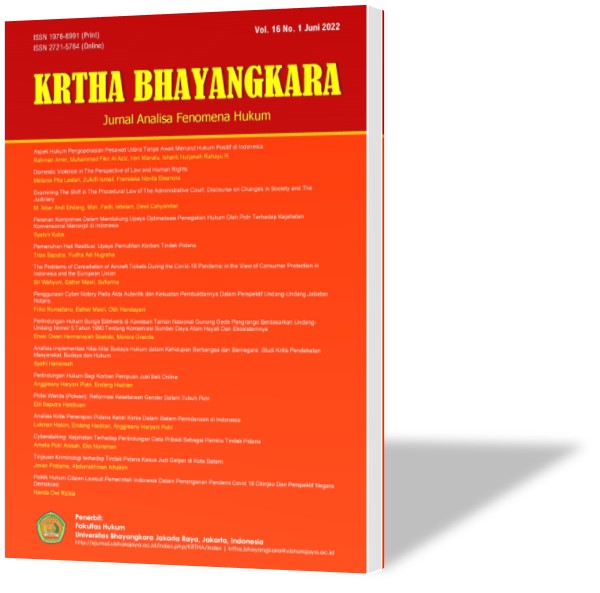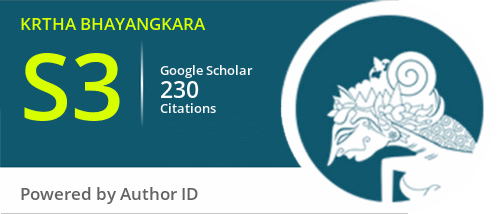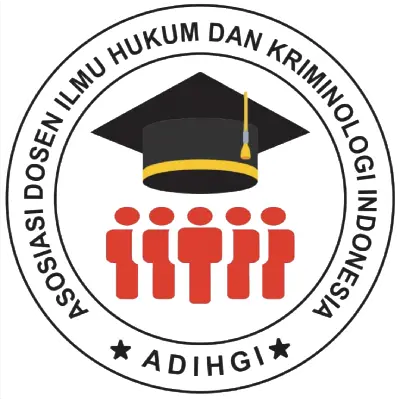Kepentingan Indonesia Terhadap Ekspresi Budaya Tradisional Dalam Sumber Hukum Internasional Mengenai Hak Kekayaan Intelektual
DOI:
https://doi.org/10.31599/krtha.v17i1.825Keywords:
SDGPTEBT, WIPO, Soft LawAbstract
The Regime of Genetic Resources, Traditional Knowledge and Traditional Cultural Expressions (SDGPTEBT) is a different regime from the existing regime of intellectual property rights. The WIPO negotiations on SDGPTEBT were held in order to discuss the protection of the SDGPTEBT at the international level. One of the problems that emerged from these negotiations was the gap between developed and developing countries regarding the final form of the outcome of the negotiations. There is still no clarity regarding the status of the "international legal instrument" itself in terms of international law, whether the international legal instrument will be more inclined as a legally binding international agreement or a soft law that is not legally binding. In terms of the effect of the results of the negotiations on Indonesian national law, there is a need to promulgate a law sui generis regarding SDGPTEBT even though the results of the negotiations are still in the negotiation stage.
References
Buku:
Agus Sardjono, Hak Kekayaan Intelektual dan Pengetahuan Tradisional, Alumni, Bandung, 2010
Agusman, Damos Dumoli, Hukum Perjanjian Internasional, Kajian Teori dan Praktiki Indonesia, 2012
Anthony Aust, Modern Treaty Law and Practice, Cambridge University Press, 2000
Mochtar Kusumaatmadja dan Etty R. Agoes, Pengantar Hukum Internasional, Alumni, 2003
Jurnal:
Reh Bungana Beru Perangin-angin, Ramsul Nababan, Parlaungan G. Siahaan, Perlindungan Pengetahuan Tradisional sebagai Hak Konstitusional di Indonesia Protection of Traditional Knowledge as Constitutional Rights in Indonesia, Jurnal Konstitusi, Volume 17, Nomor 1, Maret 2020
Yenny Eta Widyanti, Perlindungan Ekspresi Budaya Tradisional Indonesia Dalam Sistem Yang Sui Generis, ARENA HUKUM Volume 13, Nomor 3, Desember 2020
Danu Rachmanullah, Lindati Dwiatin, Kasmawati, Perlindungan Hukum Terhadap Eskpresi Budaya Tradisional Menurut Undang-Undang Nomor 28 Tahun 2014, Pactum Law Journal Vol 1 No. 04, 2018
Hartmut Hillgenberg, "A Fresh Look at Soft Law", European Journal of International Law, 1999, no.3
Makalah:
Paper dari Agus Sarjono, guru besar Fakultas Hukum UI, disampaikan pada National Workshop on Intelectual Property and Establishment of a National Database System of Traditional Knowledge, and Intangible Cultural Heritage, November 25-26, 2010, Bandung, Indonesia
Roberto Andorno, "The Invaluable Role of Soft Law in the Development of Universal Norms in Bioethics", paper at a Workshop jointly organized by the German Ministry of Foreign Affairs and the German UNESCO Commission, Berlin, 15 February 2007
Jacob E Gersen and Posner, Eric A., “Soft Law”, Stanford Law Review, Public Law and Legal Theory Working Paper No. 213
Wawancara
Wawancara media HKI dengan Ansori Sinungan, purnabakti Direktur Kerja Sama dan Pengembangan pada Direktorat Jenderal Hak Kekayaan Intelektual (DJHKI). Dimuat dalam “Bincang-Bincang - Ansori Sinungan”, Media HKI Vol. VII/No.2/April 2010, hlm. 21. Versi elektronik terdapat di http://mediahki.files.wordpress.com/2011/04/mediahki-april-2010.pdf, diakses pada 6 Juli 2022 Pukul 13.00 WIB.
Downloads
Published
Issue
Section
License
Copyright (c) 2024 Clara Ignatia Tobing, Jantarda Mauli Hutagalung

This work is licensed under a Creative Commons Attribution 4.0 International License.



































